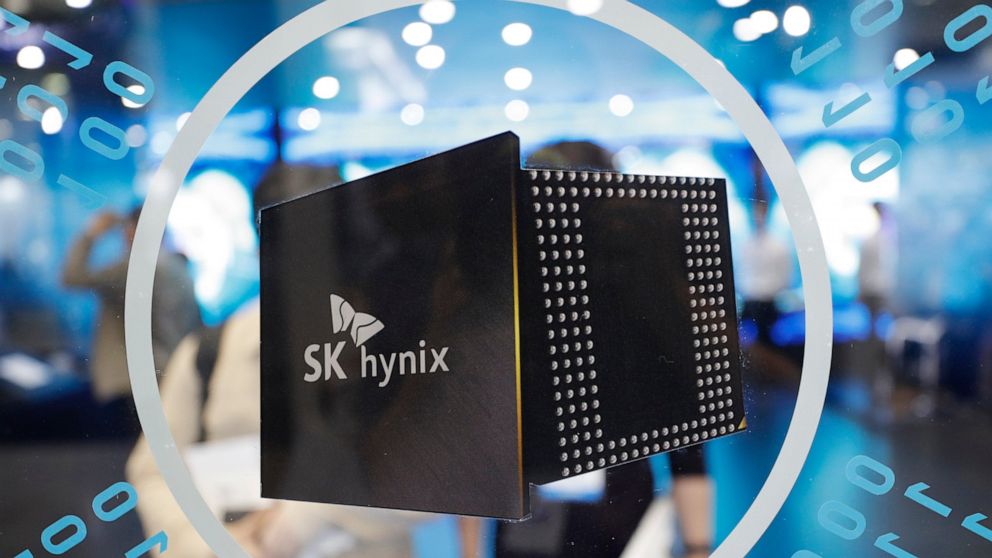SEOUL, South Korea — South Korean computer chipmaker SK Hynix said Wednesday it might be forced to sell its manufacturing operations in China if a U.S. crackdown on exports of semiconductor technology and manufacturing equipment to China intensifies.
SK Hynix’s chief marketing officer, Kevin Noh, raised those concerns during a conference call on Wednesday after the company reported its operating profit dropped 60% in the last quarter from 2021, a decline it blamed on a deteriorating business environment.
Global inflation amplified by Russia’s war on Ukraine and rising interest rates imposed by central banks to counter surging prices have slowed consumer spending on the kinds of high-tech products requiring computer chips. SK Hynix and other semiconductor makers are also navigating new U.S. restrictions on exports of advanced semiconductors and chipmaking equipment to China. Such limits were in part imposed to prevent use of American advanced technology in China’s military development.
SK Hynix said this month that the U.S. Department of Commerce granted the company a one-year exemption from such requirements, allowing it to provide equipment and other supplies to its Chinese factories making memory chips.
Other major chip and chip-manufacturing equipment makers like Samsung and Taiwan’s TSMC are thought to have also gotten exemptions.
SK Hynix may find it difficult to equip its manufacturing line in the eastern Chinese city of Wuxi with the most advanced chipmaking machines, including extreme ultraviolent lithography (EUV) systems, Noh said. He said SK Hynix doesn’t expect major disruptions at the plant at least until the late 2020s, but things could quickly turn for the worse if Washington refuses to extend temporary exemptions at some point and begins to fully enforce its export controls.
“If it becomes a situation where we would have to obtain (U.S.) license on a tool-by-tool basis, that will disrupt the supply of equipment … and we could face difficulties in operating (Chinese) fabrication facilities at a much earlier point than the late 2020s,” Noh said.
“If we face problems that make it difficult for us to operate our Chinese fabrication facilities including the Wuxi plant, we are considering various scenarios, including selling those fabrication facilities or their equipment or bringing them to South Korea,” Noh said.
He said those contingency plans would apply to a “very extreme situation,” and the company hopes to avoid…
Click Here to Read the Full Original Article at ABC News: Business…

